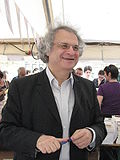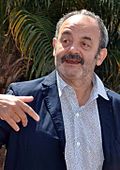History
Although there has been sporadic migration from the Middle East to France since the 17th century, the real growth of the French Lebanese population began in 1975, with the start of the civil war in Lebanon, which drove thousands of people away. Other wars with Israel, and economic mismangment leading to more economic, political crisis and Lebanon being considered a failed state by some, all of which led to continued emigration. [6] [7] [8] [9] No concrete data exists on the religious affiliations; however, it is commonly assumed that Maronite Christians make up the majority of the Lebanese population in France.
This page is based on this
Wikipedia article Text is available under the
CC BY-SA 4.0 license; additional terms may apply.
Images, videos and audio are available under their respective licenses.













